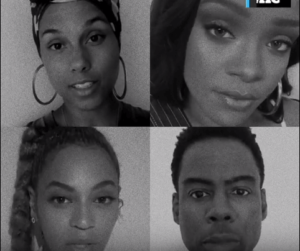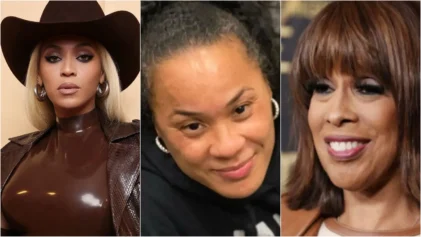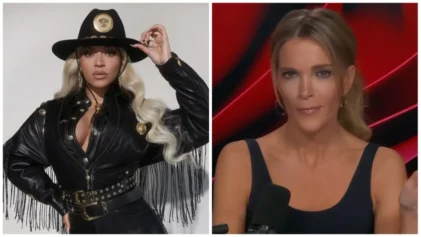
Keys’ tweet linked to a petition on her foundation’s website encouraging viewers to “tell President Obama and Congress that the time for change is now. We must right our historic wrongs and heal the wounds of systemic racism so that all Americans have the equal right to pursue happiness.”
Other stars in the video include Keys’ husband Swizz Beatz, Jennifer Hudson, Chance the Rapper, Talib Kweli, Taraji P. Henson, Maxwell, Janelle Monáe and Kevin Hart.
Their black-and-white video descriptions appear before images of the victims who were killed doing the ordinary activities. Renisha McBride, Trayvon Martin, Laquan McDonald and Sandra Bland are four of 20 Black men and women spotlighted in the clip.
The “In Common” singer’s tweet has been retweeted more than 280 times and earned nearly 380 likes in less than an hour. Fans have voiced their support for the movement.
@RonanKaymaz called the clip “beautiful” and asked people to “make a change.”
@aliciakeys @mic @Beyonce this is so beautiful! People need to wake up and realize it's time to make a change
— X6 (@RonanKaymaz) July 13, 2016
Gia Peppers called the movement “amazing.”
This is amazing. Thank you. #23ways https://t.co/Z9mccayCBM
— Gia Peppers (@GiaPeppers) July 13, 2016
While Akilah reacted to the innocent lives lost.
Just devastating! Absolutely devastating! #23Ways #BlackLivesMatter https://t.co/s0pfZLY1oX
— Akilah (@craziforlife) July 13, 2016
Deemed a “moonshot” launched to deal with the country’s history of racial injustice, the website describes the petition as the final attempt to “come to terms with the inequities our fellow Americans have suffered throughout our history and make it right. We want a radical transformation in racial justice and equality, to heal the wounds of a long national history of systemic racism.”
The campaign looks to allocate $150 billion toward poor communities over the next decade to improve the criminal justice system as well as give quality health care, education and job training.


